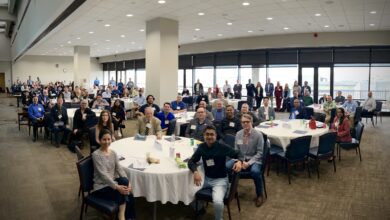
Talk is cheap, especially political talk. So much of it is produced that consumers of such talk can pick and choose what they want to hear at no cost. In April 2014, when the Department of Commerce announced that it was preparing to relinquish oversight of the Internet Assigned Numbers Authority (IANA), the technical community exploded with political talk. Over the past year, the talk has become calmer and quieter. In the process, the words of those who want to delay the transfer of oversight have become more powerful and more persuasive in the debate.
The IANA functions are a small but key part of the internet. It provides some key parameters and some management that is used by every internet service provider in the world. It is the one part of the Internet that could be in the hands of some kind of international or transnational authority. However, most of the Internet is owned by private corporations and is governed by the countries in which those firms operate.
In the Estonia, for example, most of the Internet infrastructure in owned by Elion Enterprises, a private company. The Estonian domain name, .ee, is managed by a private foundation called the Estonian Internet Foundation. The Estonian Ministry of Economic Affairs and Communications oversees Internet operations in the country. For the most part, these three institutions support all the internet services in the country. Yet, they rely on the IANA functions for a certain amount of information and one key service.
As long as the debate over the future of the IANA functions was mere debate, it would have done little to change the actions of the Department of Commerce. It was sound and fury and nothing more. It would not have stopped the department from completing its plan to relinquish oversight of the IANA functions on 30 September 2015. However the opponents of the transfer were able to add power to their words.
In politics, you make your words effective not through volume or quantity but through commitments to action. If people do nothing after hearing your ideas, your words are powerless. Only when people take action do words have power.
The call to delay the transfer of IANA oversight moved a fairly diverse group of people to act. This group included those who do not want to see it relinquished under any circumstances, as well as those who honestly want to see the IANA functions hands of an international organization but believe that the Department of Commerce moved too quickly. This coalition took two actions over the past year. One was ambiguous. The other was incomplete. Yet, they expressed the power of the group.
The first action came in December 2014, when this coalition was able to add a clause to a budget bill that prevented the Department of Commerce from using any of its funds to end U. S. Government oversight of the IANA function. It didn’t prevent the Department of Commerce from ending the oversight, though it did make it harder for the department. Conceivably, others could have paid the bill. (See my essay on this from February.) Still, it was the first sign that the opponents of transfer were willing to act.
Second, the opponents of a quick transfer of IANA oversight have been promoting a bill that would put strict conditions on any transfer. This bill has been passed by the House of Representatives and sent to the U.S. Senate. It is plausible that the bill will never be considered by the Senate, but it may not need that consideration. At the end of August, the Secretary of Commerce announced that any transfer of IANA function oversight would be delayed for at least a year.
Taken together, these two actions were little more than threats. They didn’t tell the Department of Commerce to stop work on the transfer of IANA oversight. However, they told the Department that there were a substantial number of people in commerce who might be willing to vote against a transfer and that there would be consequences of moving too quickly to release the oversight of the IANA functions. “You better follow my directions,” generations of parents have told generations of children, “or I’ll come and make you follow my directions.” Eventually, most children learn that they will have more freedom if they simply follow the parental directive than if they force the parent to take action. Those are words with power, power that comes not from action but from the clear demonstration that action is possible.






